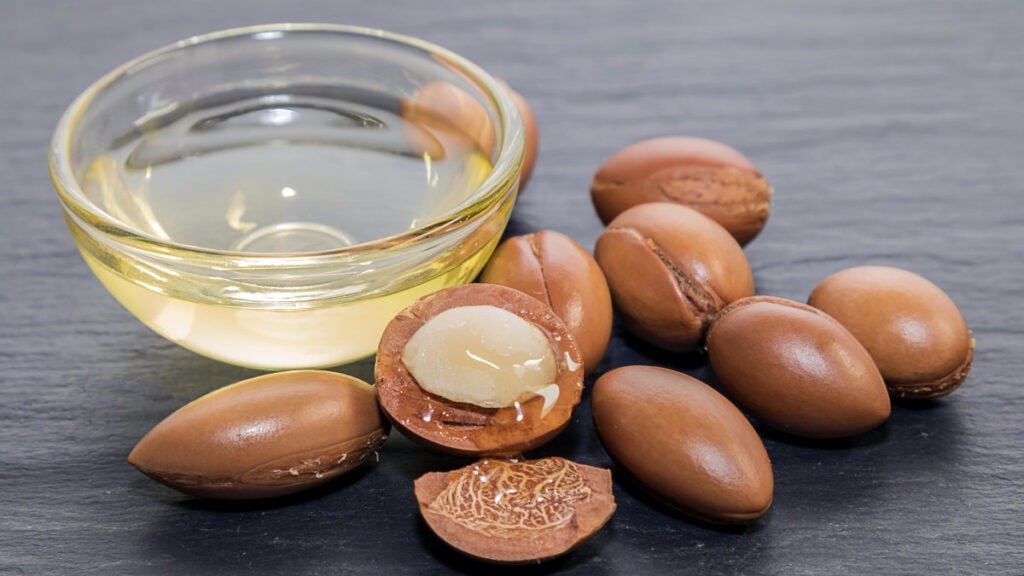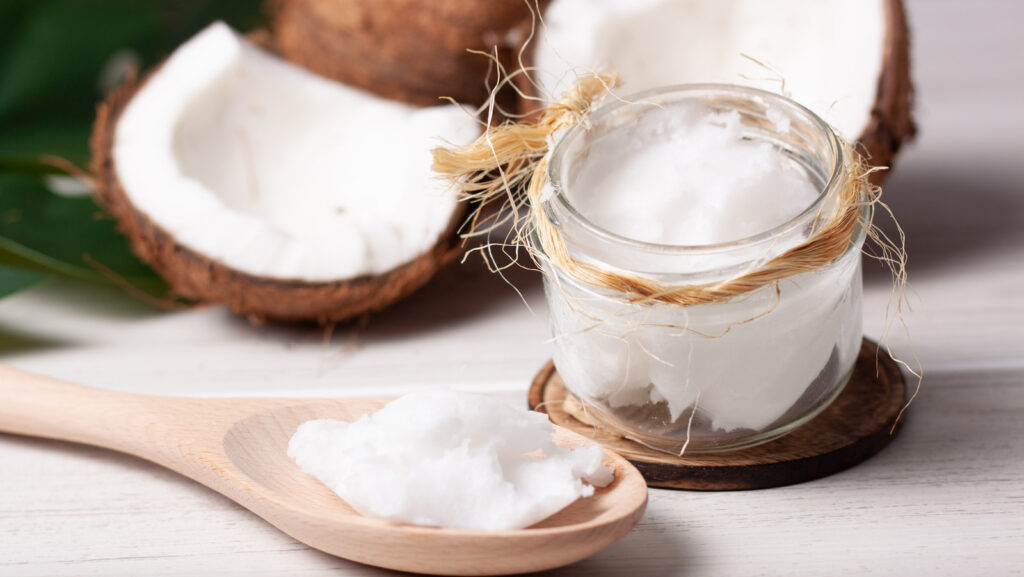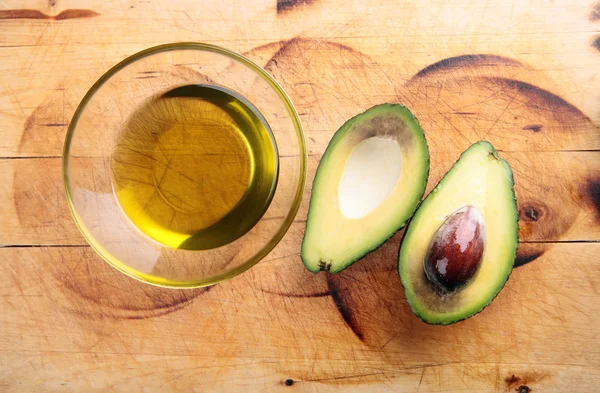5 best hair oils for summer to protect, nourish, and revitalize your hair. Discover their benefits, how to use them, their advantages and disadvantages.
Introduction
Summers are a delight for the spirit but can be tough on your hair. The intense sun, rising humidity, sweat, and exposure to chlorinated pools or salty sea breezes wreak havoc on your tresses, leaving them dull, frizzy, and brittle. While conditioners and shampoos play their part, the true game-changer for summer haircare is hair oil.
Hair oils are not only versatile but also provide deep hydration, protection, and shine that your hair craves during this season. They form a protective shield, keeping external stressors at bay while deeply nourishing the hair and scalp.
In this comprehensive guide, we delve into the five best hair oils for summer, their benefits, how to use them effectively, advantages, disadvantages, and what makes argan oil a summer essential. We’ll also provide practical insights, price comparisons, and tips for incorporating hair oils into your routine to make your hair summer-ready.
Why Hair Oils Are Essential for Summer
Hair oils are more than just a remedy for dry and damaged hair; they serve as a protective layer that safeguards your hair against the harsh summer elements. Here’s why they are indispensable:
- UV Protection: The sun’s rays can weaken your hair structure, leading to dryness and color fading. Oils act as a natural sunscreen for your hair.
- Hydration: Summer heat strips moisture from your hair. Oils replenish hydration, keeping your hair soft and manageable.
- Frizz Control: High humidity causes hair cuticles to swell, leading to frizz. Oils seal the cuticles, maintaining smoothness.
- Damage Repair: Regular use of oils repairs the damage caused by heat, chemicals, and environmental pollutants.
- Boosts Growth: Scalp massages with oil stimulate blood circulation, promoting healthier and faster hair growth.
The 5 Best Hair Oils for Summer
1. Argan Oil: The Summer Superstar
- Benefits: Known as “liquid gold,” argan oil is packed with antioxidants, vitamin E, and fatty acids. It hydrates, protects, and adds unparalleled shine.
- How to Use:
- As a heat protectant: Apply a few drops before using hot tools.
- As a finishing oil: Use sparingly on dry hair for added shine and smoothness.
- Advantages:
- Lightweight and non-greasy.
- Offers UV protection.
- Tames frizz and flyaways.
- Disadvantages:
- Can be expensive.
- Some brands dilute it with fillers, reducing effectiveness.
- Price: $10–$50 (depending on quality and brand).

2. Coconut Oil: The All-Rounder
- Benefits: A summer staple, coconut oil is deeply hydrating and helps prevent protein loss from the hair shaft.
- How to Use:
- As a pre-wash treatment: Apply to dry hair and leave for 20–30 minutes.
- Overnight mask: Apply generously, cover with a shower cap, and wash out in the morning.
- Advantages:
- Inexpensive and widely available.
- Ideal for dry, coarse hair.
- Natural antifungal properties keep scalp issues at bay.
- Disadvantages:
- Can weigh down fine hair.
- Requires thorough washing to remove.
- Price: $5–$20 (depending on packaging and purity).

3. Jojoba Oil: The Balancer
- Benefits: Jojoba oil mimics natural scalp oils, making it perfect for balancing oily scalps while hydrating dry ends.
- How to Use:
- Scalp treatment: Massage into the scalp and leave for 15–20 minutes.
- Daily leave-in: Apply a few drops to damp hair.
- Advantages:
- Lightweight and non-comedogenic.
- Balances sebum production, reducing greasiness.
- Soothes an itchy, flaky scalp.
- Disadvantages:
- Not as effective for extremely dry hair.
- Higher cost compared to traditional oils.
- Price: $8–$25.

4. Avocado Oil: The Strengthener
- Benefits: Rich in vitamins A, D, and E, avocado oil strengthens hair, boosts elasticity, and repairs damage.
- How to Use:
- Mix with conditioner: Add a teaspoon to your conditioner for a moisturizing boost.
- Deep conditioning: Apply to clean hair, wrap in a warm towel, and leave for 30 minutes.
- Advantages:
- Enhances elasticity and prevents breakage.
- Excellent for brittle, chemically treated hair.
- Disadvantages:
- May feel heavy on fine or thin hair.
- Can be pricier than traditional oils.
- Price: $7–$15.

5. Almond Oil: The Shine Enhancer
- Benefits: Almond oil is loaded with omega-3 fatty acids, magnesium, and vitamins B and E, making it ideal for nourishing and enhancing shine.
- How to Use:
- Scalp massage: Warm the oil and gently massage it into your scalp.
- Styling aid: Apply a drop or two to the ends for a polished look.
- Advantages:
- Lightweight and fast-absorbing.
- Promotes hair growth.
- Disadvantages:
- Not suitable for those with nut allergies.
- Price: $5–$20.
How to Use Hair Oils in Summer
Using hair oils effectively can make a significant difference. Here’s a step-by-step guide:
- Pre-Wash Treatment: Apply oil generously to your hair and scalp, leave for 20–30 minutes, and wash with a mild shampoo.
- Leave-In Conditioner: Use lightweight oils like argan or jojoba on damp hair to lock in moisture.
- Overnight Repair: Apply a nourishing oil and leave it overnight. Cover your pillow to prevent stains.
- Styling Aid: Smooth a few drops of oil on dry hair to tame frizz and add shine.
- Scalp Care: Massage your chosen oil into the scalp to improve circulation and reduce dandruff.
What Makes Argan Oil a Summer Essential?
Argan oil deserves special attention because it’s a multitasker in summer haircare:
- Lightweight: Won’t weigh hair down in hot, humid weather.
- UV Protection: Naturally shields hair from sun damage.
- Frizz Fighter: Keeps hair smooth, even in high humidity.
- Hydration Hero: Moisturizes without feeling greasy.
- Versatile: Use it as a heat protectant, finishing oil, or leave-in conditioner.
Advantages of Using Hair Oils in Summer
- Protects against UV and environmental damage.
- Restores hydration and prevents dryness.
- Reduces frizz and smooths flyaways.
- Improves hair texture, strength, and elasticity.
- Stimulates scalp health for better hair growth.
Disadvantages of Using Hair Oils in Summer
- Over-application can lead to greasy hair.
- May not suit all hair types; some oils can weigh fine hair down.
- Allergies or sensitivities to specific oils can occur.
- Expensive oils may strain budgets.
- Requires proper washing to prevent buildup.
Price Comparison and Recommendations
- Argan Oil: $10–$50 (premium quality).
- Coconut Oil: $5–$20 (easily available).
- Jojoba Oil: $8–$25 (mid-range).
- Avocado Oil: $7–$15 (affordable).
- Almond Oil: $5–$20 (budget-friendly).
For those on a budget, coconut or almond oil is ideal. For luxurious, lightweight options, argan and jojoba oils are worth the investment.
Conclusion
Summer haircare is all about protection and nourishment. By incorporating the right hair oils into your routine, you can shield your hair from the season’s challenges while maintaining its natural beauty.
Argan oil stands out for its UV protection and versatility, but coconut, jojoba, avocado, and almond oils are equally impressive, catering to different hair types and needs. Choose the oil that fits your requirements, and let it work its magic to keep your hair healthy, shiny, and strong all summer long!
FAQs
1. Why should I use hair oils in summer?
Hair oils provide essential hydration, protect against UV rays, reduce frizz, and repair damage caused by heat, chlorine, and pollution. They also act as a barrier, preventing moisture loss during hot, humid weather.
2. Can I use the same hair oil year-round?
Yes, but certain oils work better in summer, like lightweight ones such as argan or jojoba oil. Heavier oils like castor oil are better suited for winter when your hair needs extra nourishment.
3. How do I choose the best hair oil for my hair type?
- For oily hair, choose lightweight oils like jojoba or argan.
- For dry or frizzy hair, opt for coconut or avocado oil.
- For fine hair, avoid heavy oils and stick to almond or argan oil.
4. Can hair oils protect against sun damage?
Yes, oils like argan and coconut have natural SPF properties that shield your hair from harmful UV rays, preventing dryness and color fading.
5. How often should I apply hair oil in summer?
You can apply hair oil 1–2 times a week as a treatment or use a small amount daily as a styling aid to tame frizz and add shine.
6. Can I apply hair oil on wet hair?
Yes, applying oil to damp hair locks in moisture and provides a smoother, shinier finish. Use lightweight oils for this purpose.
7. What is the best way to apply hair oil?
- Warm the oil slightly for better absorption.
- Massage it into your scalp using circular motions.
- Apply it to the length of your hair, focusing on the ends.
- Leave it for at least 20–30 minutes before washing.
8. Are hair oils suitable for color-treated hair?
Yes, oils like argan and jojoba are safe for color-treated hair. They protect against UV rays and keep the color vibrant by reducing dryness.
9. Can hair oil make my scalp greasy in summer?
Using too much oil or heavy oils can make your scalp greasy. Apply a small amount and focus on the hair ends if your scalp tends to get oily.
10. Can I leave hair oil overnight in summer?
Yes, leaving hair oil overnight allows for deep nourishment. Cover your hair with a silk scarf or towel to avoid staining your pillow.
11. Does argan oil work for all hair types?
Argan oil is versatile and works for most hair types. It is lightweight, non-greasy, and effective for frizz control, hydration, and UV protection.
12. Are there any side effects of using hair oil in summer?
Overuse of hair oils can lead to a greasy scalp, clogged pores, and dandruff. Always rinse out excess oil and choose oils suited to your hair type.
13. Can hair oils prevent split ends?
Yes, regular use of oils like almond or coconut oil nourishes the hair, making it more elastic and less prone to splitting. However, trimming is the only way to remove existing split ends.
14. Is it safe to use hair oil before swimming?
Yes, applying hair oil before swimming in chlorinated pools or saltwater forms a protective barrier, preventing dryness and damage.
15. Can I mix different oils for summer hair care?
Absolutely. Combining oils like coconut and argan or jojoba and avocado can provide a balanced mix of hydration, protection, and nourishment.
16. How does jojoba oil benefit the scalp in summer?
Jojoba oil mimics the scalp’s natural oils, balancing sebum production. It soothes irritation, reduces dandruff, and keeps the scalp hydrated.
17. Is almond oil good for fine hair?
Yes, almond oil is lightweight and easily absorbed, making it ideal for fine hair. It adds shine without weighing the hair down.
18. Can hair oils repair sun-damaged hair?
Hair oils like argan and avocado oil contain antioxidants and essential fatty acids that repair sun-damaged hair by restoring moisture and elasticity.
19. Are there any DIY hair oil treatments for summer?
Yes, you can create a DIY hair mask by mixing coconut oil, aloe vera gel, and a few drops of lavender essential oil. Apply to your hair and leave for 30 minutes before washing.
20. Can I use hair oil as a styling product?
Yes, oils like argan and almond oil can be used as a styling product to tame flyaways, add shine, and reduce frizz.
21. Is avocado oil too heavy for summer use?
Avocado oil is heavier than argan or jojoba oil but works well for dry or damaged hair. Use sparingly or as a deep-conditioning treatment.
22. Can I use coconut oil on oily hair?
Coconut oil is not ideal for oily hair as it is heavy and can make the scalp greasier. Opt for lighter oils like jojoba or argan instead.
23. Do hair oils help with summer hair loss?
Hair oils improve blood circulation and strengthen hair roots, which can reduce summer-related hair loss. Use oils like coconut or almond for best results.
24. Are there specific oils for protecting curly hair in summer?
Yes, oils like argan, coconut, and avocado are excellent for curly hair. They hydrate and define curls while controlling frizz.
25. How long should I leave hair oil on my hair?
For best results, leave the oil on for 20–30 minutes. For deep conditioning, you can leave it overnight and rinse it off thoroughly the next morning.

